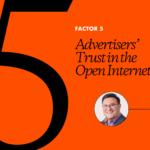It would be inaccurate to say that Facebook is currently engulfed in scandal. Facebook is always engulfed in scandal; some of those scandals just happen to be worse than others. The platform’s lucrative inaction in the face of, say, vaccine misinformation is at once totally shocking and totally unsurprising: after everything that’s happened, what else could we reasonably expect?
Publishers, in particular, have reason to be jaded about Facebook. The list of offenses is long, well-known, and worth repeating—from the traffic-tanking algorithm changes to the inflated video views and the persistent refusal to negotiate on monetization. When, in 2018, Facebook announced it would deprioritize news outlets in favor of “meaningful” conversation, it was a hit to publishers but at least promised a saner online discourse. Now, of course, we know that “meaningful” conversation meant the conversation most likely to provoke outrage, and thus engagement. Publishers lost, and so did users. The winner, as always, was Facebook.
It is not to publishers’ discredit that they invested so heavily in Facebook. The platform promised access to an audience of billions. With the right headline, or so the thinking went, a given article could reap previously-unimaginable amounts of pageviews (not to mention ad dollars). Fundamentally this is still the platform’s pitch. If it wasn’t discredited before, it certainly is now. Over a decade in, with Facebook raking in a quarter of online ad revenue, we can confidently call this a failed experiment. Publishers shouldn’t abandon Facebook—it is still a useful tool, if magnitudes less useful than advertised—but they should work towards a world in which they don’t need it to survive.
This process can start on Facebook itself. Inevitably, a large proportion of Facebook’s referrals are drive-by readers: people who blindly click a link on their News Feed, maybe not even noticing who published it. Finding ways to keep that reader engaged and on-site—through insightful user-generated comments, or by allowing them to track topics they care about—significantly ups the odds that they’ll return to your site directly. From there, you can build a real community away from the maelstrom of Facebook’s News Feed—a place that offers the same satisfactions (intellectual stimulation, online camaraderie) without the hate speech and misinformation that have come to define the Facebook experience.
With the right content and moderating tools, publishers can build a space that they own themselves, without worrying about a surprise algorithm change dispersing their audience. This is eminently doable, not least because Facebook’s users are as sick of the platform as the publishers Facebook relies on. Calmer, safer communities redound to everyone’s benefit.
People are referring to this moment as a turning point. Granted, they said the same thing after the Russian disinformation scandal, and the Cambridge Analytica scandal, and all the other flashpoints of the last decade. Whether things turn out differently this time, at least for publishers, will depend on a willingness to believe, contrary to Facebook’s claims, that real, lasting success is possible without it.
At OpenWeb, we know that publishers who build their own community see more registrations and engagement, increased time on-site, and valuable first-party data. These social experiences are an essential part of long-term success for any publisher. Read more about how OpenWeb helps publishers build thriving communities, or contact us to get started.


